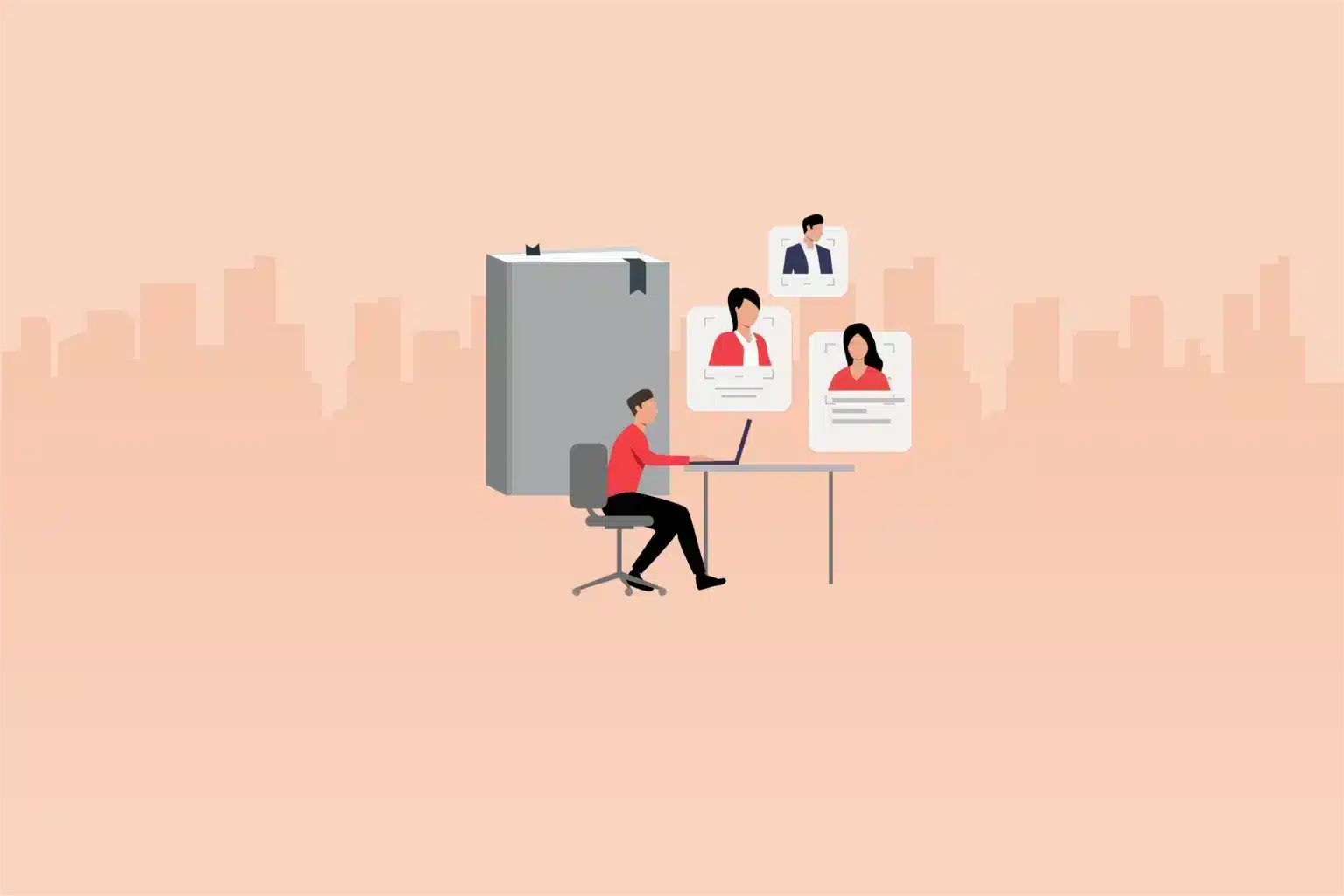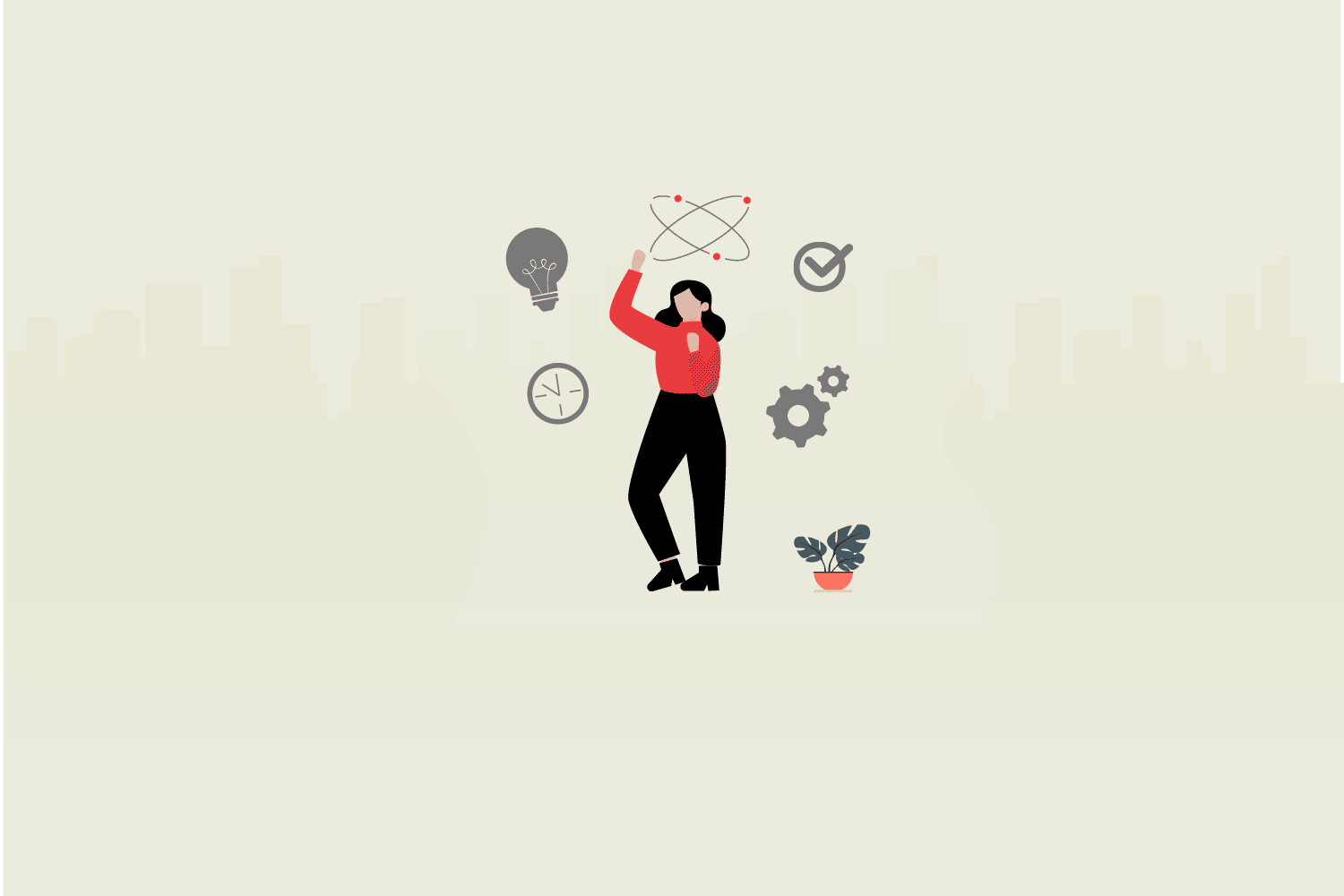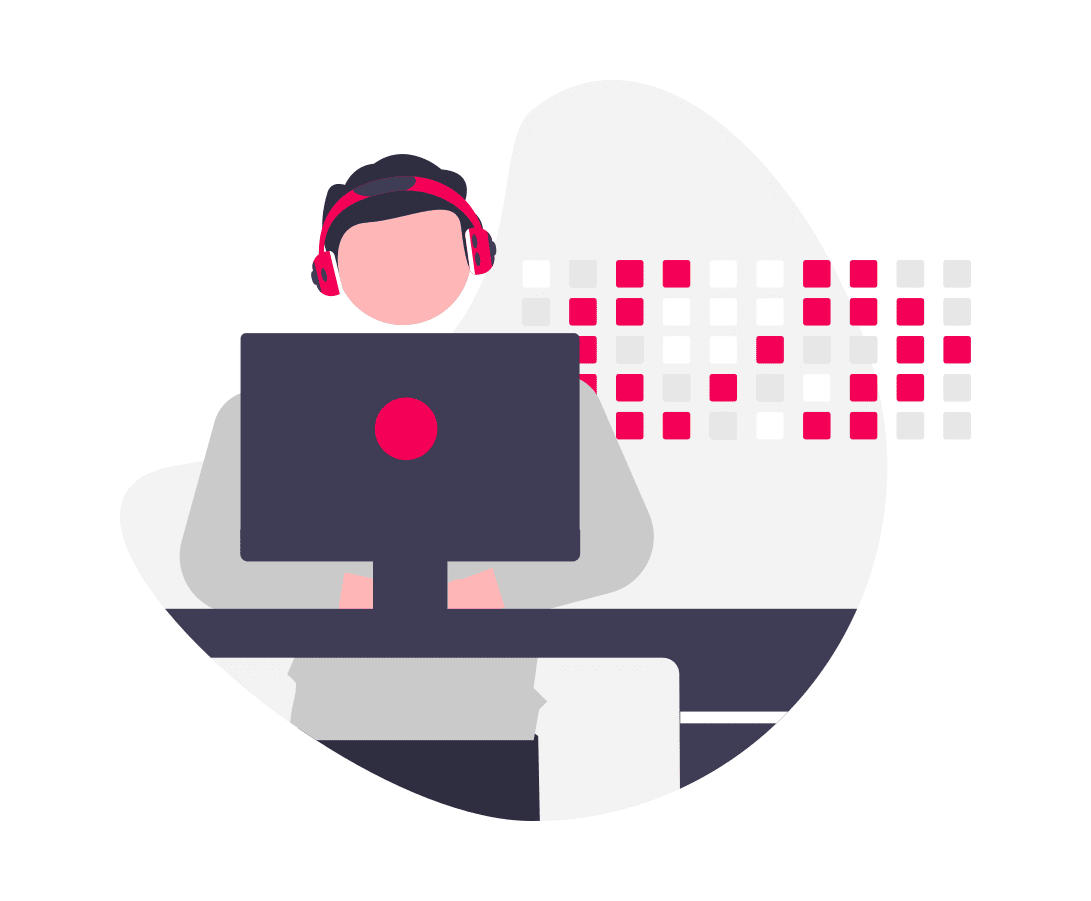In today’s fast-paced and interconnected world, the ability to collaborate effectively has become a critical factor in the success of organizations. Recognizing the importance of teamwork in achieving collective goals, organizations are increasingly placing emphasis on assessing candidates’ teamwork skills during the recruitment process. By identifying individuals who excel in collaboration, organizations can build cohesive teams and create a collaborative work environment that fosters innovation, productivity, and success.
This blog explores the significance of assessing teamwork skills in recruitment for a collaborative work environment. We will delve into various aspects, including the essential teamwork skills required for success, effective methods for assessing teamwork abilities, and the impact of teamwork on productivity and success.
Additionally, we will discuss the role of behavioral interviews and practical teamwork assessments in evaluating candidates’ collaboration abilities. By understanding the importance of teamwork assessment and adopting strategic evaluation practices, organizations can cultivate a work culture that values collaboration and reaps the benefits of cohesive and high-performing teams.
Understanding the Significance of Teamwork Skills in the Modern Workplace
In today’s fast-paced and interconnected business landscape, teamwork has become an essential ingredient for success in the modern workplace. Organizations are increasingly recognizing the value of collaborative work environments that foster effective teamwork. As a result, assessing teamwork skills during the recruitment process has gained significant importance.
Teamwork skills refer to the ability of individuals to work harmoniously and cooperatively with others towards a common goal. These skills encompass effective communication, active listening, conflict resolution, problem-solving, and the ability to adapt and collaborate with diverse team members.
The significance of teamwork skills lies in their impact on productivity and success. When employees can work together seamlessly, share ideas, and leverage each other’s strengths, it leads to enhanced creativity, increased efficiency, and improved outcomes. Effective teamwork also cultivates a positive work culture, fostering employee engagement, job satisfaction, and retention.
Assessing teamwork skills during the recruitment process allows organizations to identify candidates who are not only competent in their individual roles but also possess the ability to collaborate effectively with others. By evaluating teamwork skills, employers can assemble teams that complement each other’s strengths, work cohesively towards shared objectives, and overcome challenges more efficiently.
Moreover, assessing teamwork skills helps in predicting how well candidates will integrate into the existing team dynamics and contribute to the overall success of the organization. It enables employers to build a workforce that is not only skilled but also capable of fostering a collaborative work environment.
In conclusion, understanding the significance of teamwork skills in the modern workplace is crucial for organizations seeking to create a collaborative and high-performing workforce. By assessing these skills during the recruitment process, companies can identify individuals who possess the necessary attributes to thrive in a team-based setting, ultimately leading to improved productivity, innovation, and organizational success.
The impact of teamwork on productivity and success
Teamwork plays a pivotal role in determining the productivity and success of organizations in today’s competitive business landscape. When individuals work together effectively as a cohesive team, it creates a synergy that enhances performance and drives results.
One of the key ways teamwork impacts productivity is by promoting efficient task completion. When team members collaborate, they can divide complex tasks into smaller, manageable components, allowing for quicker execution and a more streamlined workflow. By leveraging each other’s strengths and skills, team members can overcome challenges more effectively, leading to improved efficiency and output.
Moreover, teamwork fosters creativity and innovation. When diverse perspectives and ideas converge within a team, it creates an environment that encourages innovative thinking and problem-solving. Collaborative discussions and brainstorming sessions enable team members to explore multiple approaches and find novel solutions to complex problems, thereby driving organizational growth and success.
Teamwork also enhances employee engagement and job satisfaction, which are crucial factors in productivity and success. When individuals feel valued and included within a team, it boosts their motivation, morale, and overall job satisfaction. This positive work environment promotes higher levels of commitment, initiative, and discretionary effort, all of which contribute to increased productivity and organizational success.
Furthermore, effective teamwork facilitates knowledge sharing and learning. Team members can pool their expertise, experiences, and insights, fostering continuous learning and professional development. This shared knowledge empowers individuals to expand their skills and capabilities, ultimately benefiting the team and the organization as a whole.
In conclusion, the impact of teamwork on productivity and success cannot be overstated. By promoting efficient task completion, fostering creativity and innovation, enhancing employee engagement, and facilitating knowledge sharing, teamwork contributes significantly to achieving organizational goals and maintaining a competitive edge in the market.
Assessing teamwork skills: A Key element in the recruitment process
Assessing teamwork skills has emerged as a crucial component of the recruitment process for organizations aiming to cultivate a collaborative work environment. Recognizing the significance of effective teamwork in achieving organizational success, employers are placing greater emphasis on evaluating candidates’ ability to work harmoniously in teams.
Including teamwork assessments in the recruitment process allows organizations to identify individuals who possess the necessary skills to collaborate effectively with others. These assessments go beyond evaluating technical competencies and delve into interpersonal abilities such as communication, cooperation, conflict resolution, and adaptability. By assessing these skills, employers can ensure they are selecting candidates who can thrive in a team-based setting and contribute to a positive work culture.
Integrating teamwork assessments into the recruitment process also helps organizations build diverse and complementary teams. Different individuals bring unique strengths, perspectives, and expertise to the table. Assessing teamwork skills enables employers to identify candidates who can effectively complement existing team dynamics and bridge skill gaps. This approach fosters a well-rounded team capable of tackling complex challenges and driving innovation.
Moreover, assessing teamwork skills during recruitment aids in predicting candidates’ potential for long-term success within the organization. Candidates who demonstrate strong teamwork skills during the assessment process are more likely to integrate seamlessly into the existing team structure, collaborate efficiently, and achieve collective goals. This alignment between candidate attributes and organizational values contributes to higher employee satisfaction, engagement, and retention.
In conclusion, incorporating teamwork assessments as a key element in the recruitment process allows organizations to identify individuals who possess the necessary interpersonal skills to thrive in collaborative work environments. By evaluating candidates’ teamwork skills, organizations can build diverse teams, enhance productivity, and establish a positive work culture that drives long-term success.
Identifying essential teamwork skills for a collaborative work environment
In order to foster a collaborative work environment, it is crucial for organizations to identify and prioritize the essential teamwork skills required for success. These skills serve as the foundation for effective collaboration and enable teams to work together cohesively towards shared goals. Here are some key teamwork skills to consider:
- Communication: Strong communication skills are essential for effective teamwork. This includes active listening, expressing ideas clearly, and being responsive to others’ perspectives. Clear and open communication fosters understanding, minimizes misunderstandings, and promotes effective collaboration.
- Cooperation: The ability to cooperate and work harmoniously with team members is crucial. Cooperation involves being supportive, respectful, and willing to compromise when necessary. It helps build trust, strengthens relationships, and creates a positive team dynamic.
- Conflict Resolution: Conflict is inevitable in any collaborative setting, but the ability to resolve conflicts constructively is essential. Team members should be skilled in managing conflicts, finding mutually beneficial solutions, and promoting a healthy and inclusive work environment.
- Problem-solving: Effective teamwork requires strong problem-solving skills. Team members should be able to analyze challenges, think critically, and contribute creative solutions. Collaborative problem-solving encourages diverse perspectives and improves decision-making.
- Adaptability: In a collaborative work environment, adaptability is crucial. Team members need to be flexible and open to change, as projects and circumstances evolve. Adaptability allows teams to navigate challenges, embrace new ideas, and adjust strategies as needed.
- Empathy: Understanding and empathizing with team members’ perspectives and emotions is vital for building strong relationships. Empathy promotes a supportive and inclusive work environment, fostering trust and collaboration.
- Accountability: Team members should take responsibility for their actions, meet deadlines, and deliver on commitments. Being accountable ensures that the team can rely on each other, maintains productivity, and maintains trust within the team.
By identifying and nurturing these essential teamwork skills, organizations can create a collaborative work environment where teams can thrive, innovate, and achieve collective success.
Effective methods for assessing teamwork skills during recruitment
Assessing teamwork skills during the recruitment process is crucial for identifying candidates who possess the necessary abilities to collaborate effectively within a team. To ensure accurate evaluation, organizations can employ various effective methods that provide insights into candidates’ teamwork skills. Here are some methods to consider:
- Behavioral Interviews: Conducting structured behavioral interviews allows recruiters to assess candidates’ past experiences and behaviors in teamwork situations. By asking targeted questions about teamwork challenges, contributions, and problem-solving, recruiters can gauge candidates’ ability to communicate, cooperate, and handle conflicts within a team.
- Group Exercises/Simulations: Organizing group exercises or simulations during the recruitment process can provide a realistic assessment of candidates’ teamwork skills. These activities can include solving problems as a team, role-playing scenarios, or working on a simulated project. Observing candidates’ interactions, communication styles, and their ability to collaborate and contribute effectively provides valuable insights.
- Reference Checks: Seeking feedback from a candidate’s previous supervisors or colleagues can offer valuable insights into their teamwork skills. References can provide information about the candidate’s collaboration abilities, communication effectiveness, adaptability, and overall team contributions.
- Teamwork Assessments: Utilizing specialized teamwork assessments or psychometric tests designed to evaluate specific teamwork competencies can provide objective measurements. These assessments may include situational judgment tests, personality inventories, or teamwork-oriented questionnaires. They help assess candidates’ teamwork-related attributes and compare them against desired benchmarks.
- Portfolio/Project Reviews: Requesting candidates to provide examples of their previous teamwork projects or portfolios enables recruiters to evaluate the quality of their teamwork outcomes. Reviewing these materials allows recruiters to assess candidates’ ability to work collaboratively, communicate effectively, and achieve team goals.
- Role-Play Scenarios: Incorporating role-play scenarios specific to teamwork situations can assess candidates’ ability to navigate and resolve conflicts, communicate clearly, and make decisions as part of a team. Role-play exercises provide a glimpse into candidates’ interpersonal skills and their approach to collaboration.
By employing these effective assessment methods, organizations can gain comprehensive insights into candidates’ teamwork skills, allowing them to make informed decisions during the recruitment process. Assessing teamwork skills accurately ensures the selection of candidates who can contribute positively to the collaborative work environment and drive collective success.
The role of behavioral interviews in evaluating teamwork abilities
Behavioral interviews play a significant role in assessing candidates’ teamwork abilities during the recruitment process. This structured interview technique focuses on candidates’ past experiences and behaviors to gain insights into how they perform in team-based environments. By asking specific questions related to teamwork, recruiters can evaluate candidates’ collaboration skills, communication style, problem-solving approach, and ability to work effectively as part of a team.
During a behavioral interview, recruiters typically inquire about candidates’ past experiences working in teams, their roles and responsibilities, and the outcomes of their collaborative efforts. By delving into real-life scenarios, recruiters can gauge how candidates have handled various teamwork challenges, such as conflicts, deadlines, and differing opinions.
The key to effective behavioral interviews is asking candidates to provide specific examples of their teamwork experiences, including details about the context, actions taken, and outcomes achieved. This approach allows recruiters to assess candidates’ interpersonal skills, leadership potential, adaptability, and ability to contribute to a team’s success.
Through behavioral interviews, recruiters can evaluate candidates’ communication skills by analyzing how effectively they express their thoughts, listen to others, and engage in constructive dialogue within a team setting. Recruiters can also gain insights into candidates’ problem-solving abilities, their approach to decision-making, and their ability to collaborate and contribute to achieving shared objectives.
To enhance the effectiveness of behavioral interviews, it is essential for recruiters to align their questions with the specific teamwork skills and competencies required for the role. This ensures that the evaluation process is tailored to the organization’s collaborative work environment and accurately assesses candidates’ potential to thrive within a team.
In conclusion, behavioral interviews provide a valuable tool for evaluating candidates’ teamwork abilities during the recruitment process. By exploring candidates’ past experiences, behaviors, and actions within team settings, recruiters can assess their collaboration skills, communication effectiveness, problem-solving approach, and overall suitability for a collaborative work environment.
Incorporating practical teamwork assessments in the hiring process
Incorporating practical teamwork assessments in the hiring process can significantly enhance the evaluation of candidates’ ability to work collaboratively. These assessments go beyond traditional interviews and allow recruiters to observe candidates’ teamwork skills in action. By incorporating hands-on activities, organizations can gain valuable insights into candidates’ collaboration, communication, problem-solving, and decision-making abilities. Here are some practical teamwork assessment methods to consider:
- Team-Based Exercises: Organizing team-based exercises where candidates are required to work together on a specific task or project allows recruiters to assess their ability to collaborate effectively. Observing how candidates communicate, delegate tasks, resolve conflicts, and contribute to the team’s overall success provides valuable insights into their teamwork skills.
- Role-Playing Scenarios: Implementing role-playing scenarios related to real-life teamwork situations enables recruiters to assess how candidates handle challenges, make decisions, and interact within a team dynamic. Role-playing exercises provide a glimpse into candidates’ interpersonal skills, adaptability, and problem-solving abilities.
- Case Studies: Presenting candidates with case studies that require teamwork and collaboration allows recruiters to evaluate their analytical thinking, communication, and collaborative problem-solving skills. Candidates can showcase their ability to work collectively, analyze information, and propose effective solutions.
- Group Interviews: Conducting group interviews where candidates participate in discussions or work on group projects provides an opportunity to observe their teamwork skills in a simulated work environment. This method allows recruiters to assess candidates’ communication, leadership potential, and ability to contribute effectively within a team.
- Simulations: Implementing simulations that mirror real-world teamwork scenarios allows recruiters to assess candidates’ performance under realistic conditions. Simulations can range from virtual team challenges to in-person exercises that replicate common teamwork situations, enabling recruiters to observe candidates’ collaboration, adaptability, and decision-making skills.
By incorporating practical teamwork assessments, organizations can gain deeper insights into candidates’ actual teamwork abilities. These assessments provide a more holistic evaluation and allow recruiters to identify individuals who are not only technically competent but also possess the necessary interpersonal skills to excel in a collaborative work environment. Practical assessments enhance the hiring process by ensuring that candidates selected for team-oriented roles are well-suited to contribute effectively to the organization’s collective success.
Creating a collaborative work environment through strategic teamwork evaluation
Creating a collaborative work environment is a strategic goal for many organizations seeking to enhance productivity, foster innovation, and drive success. An effective approach to achieving this is through strategic teamwork evaluation during the recruitment and performance management processes. By incorporating a comprehensive and thoughtful evaluation of teamwork skills, organizations can identify and nurture the attributes necessary for a collaborative work environment. Here’s how strategic teamwork evaluation plays a pivotal role in creating such an environment:
- Recruitment: By strategically evaluating candidates’ teamwork skills during the recruitment process, organizations can ensure they attract individuals who possess the necessary attributes to thrive in a collaborative work environment. Assessing candidates’ communication, cooperation, adaptability, and problem-solving skills allows organizations to build diverse teams that can work together cohesively towards shared goals.
- Onboarding and Training: Once candidates are hired, strategic teamwork evaluation can be used during the onboarding and training phases to further develop and enhance their collaborative abilities. This can include targeted training programs, mentoring, and providing opportunities for hands-on teamwork experiences that foster effective communication, trust, and cooperation among employees.
- Performance Management: Integrating teamwork evaluation into the performance management process enables organizations to provide ongoing feedback and support for employees’ collaboration efforts. This includes setting clear teamwork-related goals, providing regular assessments, and recognizing and rewarding exceptional teamwork contributions. Performance evaluations that incorporate teamwork assessment criteria encourage employees to continually improve their collaboration skills and contribute to a collaborative work environment.
- Team Building Initiatives: Strategic teamwork evaluation can inform team building initiatives, helping to create cohesive and high-performing teams. By identifying the strengths and areas for improvement within teams, organizations can develop targeted team building activities, training, and interventions to enhance teamwork dynamics and foster a culture of collaboration.
- Leadership Development: Strategic teamwork evaluation can also be used in leadership development programs to cultivate effective team leaders who can facilitate collaboration and create an inclusive work environment. Assessing leadership candidates’ ability to foster teamwork, build strong relationships, and inspire collective efforts enables organizations to develop leaders who can drive collaboration at all levels.
By strategically evaluating teamwork skills throughout the employee lifecycle, organizations can create a collaborative work environment that empowers employees, enhances productivity, and drives success. Strategic teamwork evaluation helps to attract, develop, and retain individuals who excel in teamwork, fostering a culture of collaboration that permeates throughout the organization. Through this deliberate approach, organizations can create an environment where collaboration thrives, innovation flourishes, and teams achieve exceptional results.
Conclusion
Assessing teamwork skills in the recruitment process is vital for organizations seeking to build a collaborative work environment. By strategically evaluating candidates’ collaboration abilities and providing ongoing support and development, organizations can create a culture where teamwork thrives, leading to improved productivity, innovation, and overall success.
One valuable tool that can aid in assessing communication skills during the recruitment process is Testlify. Testlify offers a range of assessments specifically designed to evaluate candidates’ teamwork skills and abilities. Through our platform, recruiters can administer tests that assess teamwork skills, interpersonal and collaboration skills, and the ability to handle real-world scenarios. Testlify’s assessments provide valuable insights into candidates’ strengths and areas for improvement, allowing recruiters to make data-driven decisions when selecting the best candidates for the job. By incorporating Testlify into the recruitment process, organizations can enhance their ability to identify top talent with exceptional teamwork skills, ensuring a workforce that can effectively engage with customers, collaborate within teams, and contribute to the organization’s overall success.








